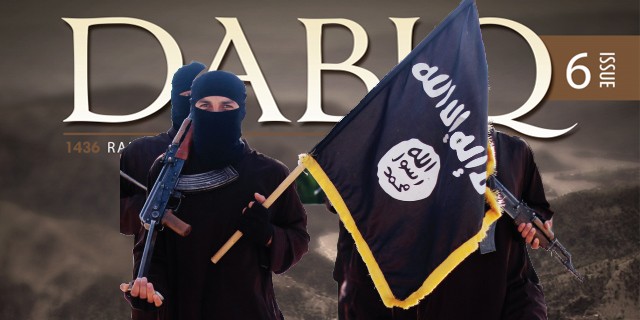January 27, 2016- In the most recent issue of Dabiq, the official Islamic State online magazine written in English, ISIS declares Shia Muslims to be an official enemy of the Islamic State. The 56 page long article calls on ISIS members and supporters to kill Shia Muslims whom they derogatorily call “Rafidah” or rejecters, alluding to the fact that they do not consider this sect of Islam to be true to the Muslim faith.
Why did ISIS declare an anti-Shia sentiment? Part of the Islamic State’s ideology is to create a common enemy in order to gain supporters for their own cause. They declared Shias the enemy for two reasons; One, the huge rivalry between Sunnis and Shias in Islam, and two, the huge distrust of Iran in the West. The Sunni Shia schism has been a source of constant rivalry in the Islamic faith over the past millennium, which ISIS uses to promote its own interests. According to ISIS, their goal is to establish a worldwide Sunni caliphate. One way they are able to generate wide support for their terror organization is through the West’s distrust of Iran. In America as well as much of Western Europe, Iran is thought of as being one of the most anti-American and anti-Western sovereign state, especially in the aftermath of the 1979 Iranian Revolution. Iran happens to be one of the largest Shia populated states, and also has a leader who is representative of this. The goal of ISIS therefore, is to win support for their organization with the hope that people, such as westerners, will mix up their mistrust of Iran to equal a mistrust of Shia Muslims as a whole. Thus far, unfortunately, the Islamic State’s strategy has been working, with people both from the United States, as well as several European countries, being reported of having run away to join the terror organization.
However, will ISIS be able to keep making gains by playing the anti-Iran card? My guess is yes for now, but that may change over time. Just this week the Iranian president, Rouhani, following the relaxing of sanctions on Iran, went on a tour of Europe where he met with leaders from France, Italy, and the Holy See. He conducted billions of dollars’ worth of deals with other sovereigns as well as businesses in these states. The Iranian president also met with Chinese president, Xi, where they made billions of dollars’ worth of deals, setting up a chapter for good Chinese-Iranian relations. However, despite these gains, several countries including the USA, Germany, Great Britain, and France, have proposed that new sanctions be made on Iran following an unauthorized missile test run by Iran on October tenth. Also, due to Iran’s oppressive regime, many Western states still do not trust Iran fully. This means that despite business being conducted, relations are still pretty shaky between Iran and the West. However, hopefully these visits will inspire the Iranian leader to continue building better relations with the West as well as hopefully treat his own citizens more humane. Rouhaini’s western tour is definitely a good sign, but we still need to wait to see what will happen in the weeks, months, and years to come.
It is important to recognize that the ideology being used by terrorist groups such as ISIS is largely flawed because it groups all Shia Muslims as Iranis which is simply not the case. Not all Iranis are Shias, and not all Shias are Iranis. What ISIS does here is oversimplify the problem to create fear of association. Their hope is that westerners will associate Shia with Iran and will start to fear the former. Fear by association ideology has been a standard fear tactic for centuries and has been used by historic figures such as Hitler, as well as modern “politicians” such as Donald Trump. The goal of this ideology is to create a scapegoat and turn the public against them using fear and hatred, in order to gain support for their own cause. For example, following World War I, in Germany, Hitler used the Jews as a scapegoat blaming them for the country’s economic problems in order to gain support of the German people. Donald trump is using fear tactics to try to win the American vote by proposing ideas such as preventing the immigration of any Muslims into the United States. Just like Hitler tried to spark fear of the Jews, Trump is working to spark fear of Muslims; both in order to gain power, by tricking the people into thinking blame is being thrown for the purpose of the safety of the common good.
However, the truth is that in each and every case where an entire group is blamed, unjust and untrue assumptions are being made. By targeting an entire group you essentially dehumanize the members of that particular group by making assumptions that they are all the same. In reality, there is no one race, religion, gender, country, etc., to blame for the world’s problems. It is key to remember that of each race, religion, country, etc., there are a mix of both good as well as bad people, leaving no one group perfect and no one group the ultimate enemy. Every single human being in the world is different from one another, and it is vital to always remember that.










